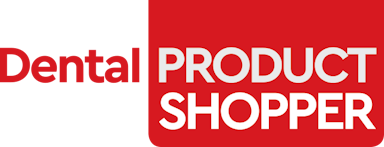As Dentists, We Have an Essential Role in Sleep Medicine
"Struggling with snoring and sleeplessness? Call your dentist.” That simple recommendation is what your patients receive if they use any of the popular online consumer healthcare resources, such as WebMD or Mayo Clinic. If they do call you, will you be ready?
As many as 22 million Americans may suffer from obstructive sleep apnea (OSA), which is acknowledged as the most common cause of disordered sleeping and snoring, according to the American Sleep Apnea Association, and the great majority of these cases go undiagnosed. Untreated sleep disorders and chronic sleep loss are associated with health issues ranging from an increased risk of heart disease and type 2 diabetes to anxiety, depression, and more. We, as dentists, can and should play an essential role on a team that includes the general physician and other healthcare professionals. This is not just my professional mantra—in 2017, the American Dental Association adopted a policy urging dentists to screen for sleep-related breathing disorders.
My practice focuses on the treatment of sleep-disordered breathing such as snoring and OSA. We use a custom-fitted oral device that advances the mandible, thereby creating an opening to alleviate the collapsibility of the upper airway. More and more physicians are aware of the efficacy of this type of oral device and are recognizing dentists as partners in the effort to help manage OSA. Physicians are now referring their sleep apnea patients who are intolerant of, or who prefer not to use, the CPAP machine.
“You'll be amazed at how many patients you can truly impact by pointing them in the right direction.”
I have extensive training in the area of dental sleep medicine and was one of the first in my state to obtain diplomate status with the American Board of Dental Sleep Medicine. This expertise is key when building strong referral networks, and it has made me confident when working with doctors, nurse practitioners, and physician assistants. I follow the protocol established by the American Academy of Dental Sleep Medicine and keep the treating physicians involved in the care of our mutual patients. When treatment is completed, I refer patients back to their sleep doctor or primary care provider for continuing care. Treating sleep disorders definitely requires a whole healthcare team. For example, an OSA patient also may present with insomnia, high blood pressure, or atrial fibrillation, requiring the management of a psychologist, internist, or cardiologist.
As general dentists, we spend our days looking at arch forms, occlusion, abrasion patterns, and oropharynxes. There are multiple associated presentations of sleep-disordered breathing that should set off a conversation about the patient's sleep history. For example, significant bruxing wear along with narrow arch forms and a crossbite should suggest a deeper analysis of the patient's sleep history and a referral for a sleep study to rule out OSA. Knowing the classic presenting signs offers you the opportunity to truly change your patient's quality of life!
Once you learn about the symptoms, the orofacial features, and the common medical comorbidities of OSA patients, you’ll be amazed at how many you can truly impact by pointing them in the right direction. Dental sleep medicine is fascinating and can bring a new level of care for your patients and a renewed passion for your professional life.
Daniela Sever, DMD, earned her degree from the Harvard School of Dental Medicine, followed by a general practice residency at the Boston V.A. Hospital. In the last 12 years, Dr. Sever became interested in the field of dental sleep medicine and has undertaken extensive study in this area. She has studied with nationally and internationally renowned educators and clinicians. Several years ago, her office was accredited by the American Academy of Dental Sleep Medicine, one of the first 20 in the United States. Dr. Sever is also certified by the American Board of Dental Sleep Medicine.



